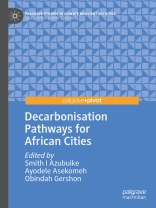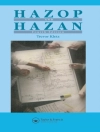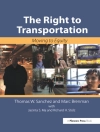This book examines the pathways to decarbonising African cities, structured around strategies and applications in renewable energy, waste management, healthcare, telecommunication, education and governance reconfigurations for Petro-cities. Throughout the book the authors highlight infrastructural, governance and policy approaches to drive decarbonisation. Opening with chapters focused on propositions for solar urban planning and scope for decarbonisation in waste management the book then moves on to examine innovative strategies for a low-carbon healthcare sector. The authors then discuss the use of hybrid power systems at remote telecommunication sites, their deployment on university campuses, and how this can be optimised to reduce carbon emissions. Further chapters explore government, private sector and civil society actions for decarbonising Kenyan cities and an overview of the political economic choices for decarbonising Petro-cities. Finally, closing chapters propose mechanisms for translating COP26 takeaways to decarbonisation policies and a low-carbon framework for African cities.
Tabela de Conteúdo
1. Introduction: Decarbonising African Cities in a Carbon-Constrained World.- Part I: Part I Decarbonising African Cities: Strategies and Applications.- 2. Solar Urban Planning in African Cities: Challenges and Prospects.- 3. Contextualising Waste Management Operations Towards Low-Carbon African Cities.- 4. Innovative Strategies for Decarbonising the Healthcare Sector in Nigerian Cities.- 5. Optimising Hybrid Power Systems for Sustainable Operation of Remote Telecommunication Infrastructure.- 6. Performance Analysis of a Grid-Linked Microgrid System in a University Campus.- Part II: Governance and Policy Approaches for Decarbonising African Cities.- 7. Powering Action Towards Energising African Cities Sustainably: Perspectives from Kenya.- 8. The Political Economy of Decarbonising African Petro-cities: Governance Reconfigurations for the Future.- 9. To Opt-in or to Cop out: COP26and the Policy Dynamics of Decarbonising African Cities.- 10. Conclusion: Towards a Decarbonisation Framework for African Cities.
Sobre o autor
Dr Smith I Azubuike is Assistant Professor in Energy Law at Durham Law School, Durham University and a qualified Lawyer in Nigeria. He previously taught at Queen’s University Belfast. Smith’s teaching and research focus on energy law and sustainability, risk allocation in the energy sector and renewable energy law. Smith is the Book Reviews Editor of Edinburgh University Press’ Global Energy Law and Sustainability journal.
Dr Ayodele Asekomeh is Senior Lecturer at the Aberdeen Business School, Robert Gordon University. A multiple Chartered Accountant with big-4 experience, his work considers the interactions and discourses among state actors, investors and other stakeholders on financing, accountability, governance, sustainability and risk in the energy and extractive industries in the context of climate action.
Dr Obindah Gershon holds a Ph D in economics. He Chairs the Centre for Economic Policy and Development Research (CEPDe R) and is a Senior Lecturer at the Department of Economics and Development Studies Covenant University, Nigeria. He is a visiting Professor to Eduardo Mondlane University, Mozambique and a member of the IAEE.












